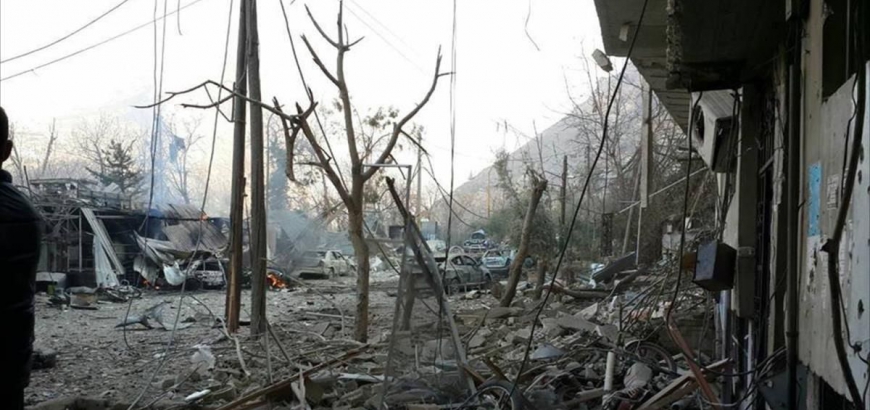The ceasefire which has been in effect for less than two weeks faces real challenges, the Syrian opposition has warned, claiming that the regime and its allies continue to carry out many violations, especially in the region of the Barada valley and the eastern Ghouta of the capital Damascus.
In statements to Anadolu, representatives of several Syrian opposition factions said that Russia, as the guarantor for the Assad regime and its allies, had been unable to force the regime and its allied terrorist groups to comply with the truce.
From midnight on Thursday/Friday (Dec. 30) the ceasefire agreement between the regime and opposition in Syria went into effect after Russia and Turkey agreed to back the truce.
Rami Dalati, a member of the political bureau of the opposition Free Syrian Army said "the regime did not comply with stopping the breaches at all and the Russians (who support the regime militarily) have not been able to provide guarantees for the regime, because the Iranians present on the ground have military decision-making power, while they (the Russians) are in the sky."
Dalati, in statements to Anadolu, continued: "The weakness of Russian political pressure was less than the strength of the resistance of Hezbollah and the Shiite militias (loyal to the regime)… we will have real challenges in the ceasefire."
On the quality of these challenge, the Syrian opposition member said that "Every time, the breaches begin with the Iranians… in the third day of the truce, there was movement of regime aircraft, and this confirmed that the regime does not want the truce to succeed."
Regarding the breaches in the area of the Barada valley, he said that: "Only two days after the truce was announced, the area was under heavy attack. This is the area which (the Lebanese) Hezbollah tried hard to take control over. The breach began when regime forces and the Revolutionary Guard and Hezbollah tried to storm the area with commandos (special forces) and were repulsed a number of times."
The Syrian opposition member touched on what was reported in the media about the attempt of four Russian officers to enter the Barada valley, saying that "Hezbollah prevented Russian forces from entering the area, and there are sources who have confirmed this to us. The reasons aren't clear, but we think that the main reason is that Hezbollah does not want the ceasefire."
Days ago, the Russian Sputnik official news agency quoted a Russian military source as saying that news circulated about Hezbollah members preventing Russian officers from entering the Barada valley is altogether untrue.
With regard to the issue of the Barada valley area, Mohamed Birqadr, head of the public relations office in the opposition Jaish al-Islam (Army of Islam) said that "the Barada valley position is very important, as it falls within a chain of demographic displacement in the area. The regime has not stopped striking these areas, in order to impose a military reality in the Barada valley, especially given that Hezbollah sees the area as important and strategic for itself."
This article was translated and edited by The Syrian Observer. Responsibility for the information and views set out in this article lies entirely with the author.


